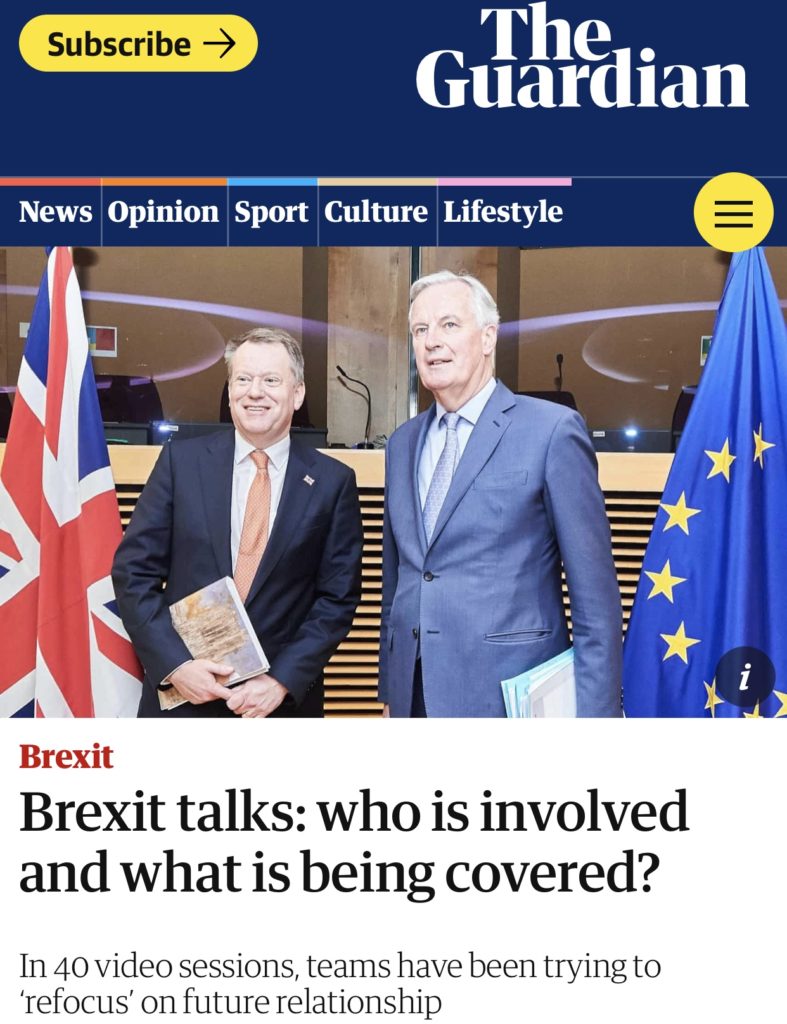First week of negotiations
Brexit talks on the future relationship between the UK and the EU resumed this week after a six-week interruption caused by coronavirus.
Over five days and 40 video sessions, 10 negotiating teams were expected to provide an urgent “refocus” before the 30 June deadline for both sides to formally agree to extend the transition period if the UK asks for one.

Michel Barnier, the EU’s lead negotiator, will host a press conference at noon on Friday in Brussels to give updates, but his team were told on Monday that Boris Johnson was not budging on the issue of the extensions.
Barnier’s opposite number, David Frost, opened the first plenary session by “reiterating the government wish not to extend the transition period and that the job could be done by the end of the year”.
Featuring Michael Gove, the Cabinet Office minister, and Maroš Šefčovič, a European commission vice-president, the Joint Committee met for the first time on 30 March and will make decisions on recommendations made by civil servants who will staff six specialised committees.
The committees cover the Northern Ireland protocol; citizens’ rights; British sovereign army bases in Cyprus, the divorce bill, Gibraltar and “other separation issues”. Who is on the committees, how often they will meet and precisely what they will be exploring has yet to be disclosed.
The Ireland Northern Ireland specialised committee (INISC) will meet for the first time on 30 April. The Cabinet Office has confirmed that the INISC will be “comprised of official-level representatives of the EU and the UK” and will “meet as regularly as required to facilitate engagement between the UK and the EU on protocol implementation”.
Gove told parliament as recently as February that the UK needed an army of 50,000 customs agents to deal with cross-border trade from January 2021. It seem unlikely much progress has been made here.
Source: TheGuardian
You must be logged in to post a comment.